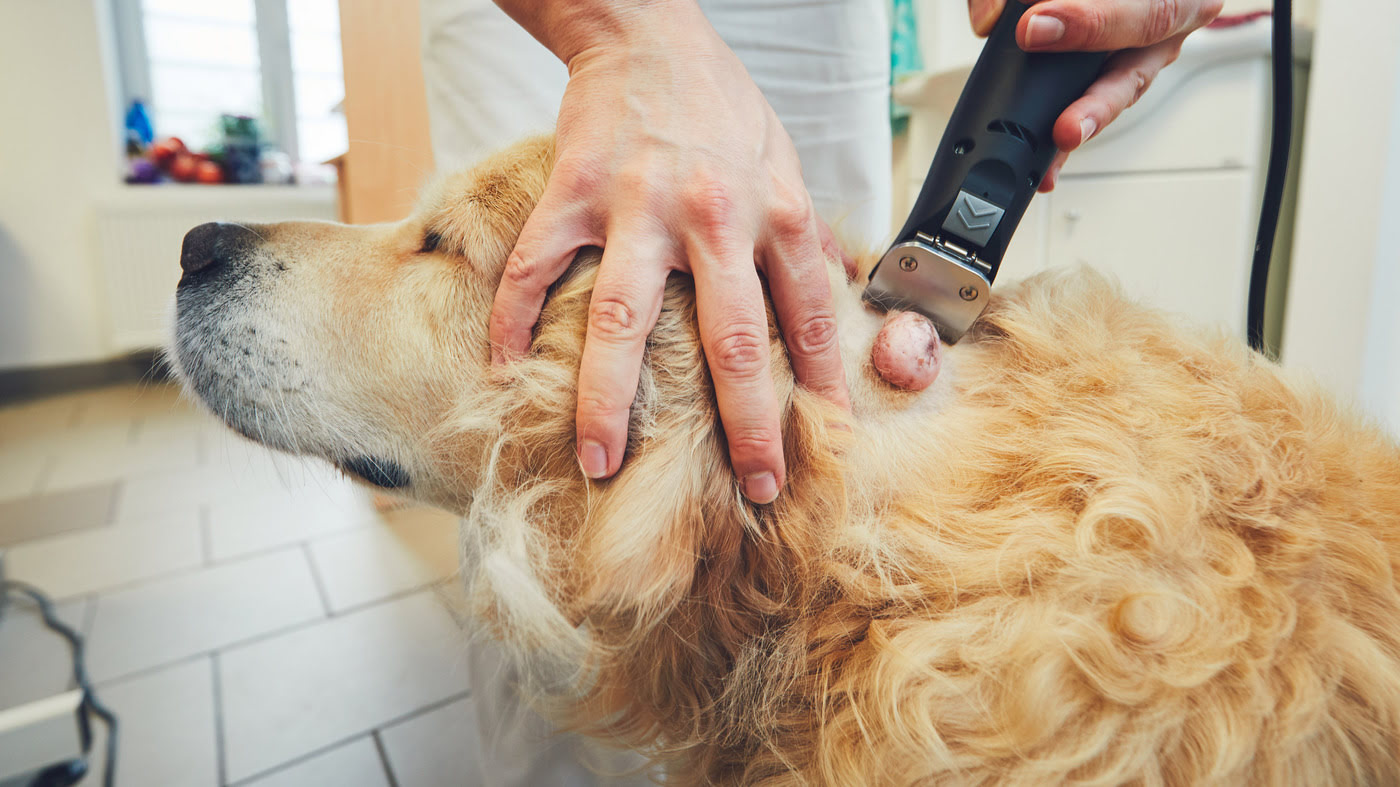Home>Health & Wellness>Nutrition & Diet>How To Get Omega-3 In A Dog’s Diet


Nutrition & Diet
How To Get Omega-3 In A Dog’s Diet
Published: January 28, 2024
Discover the best ways to incorporate omega-3 into your dog's diet for optimal nutrition and health. Learn about the benefits and sources of omega-3.
(Many of the links in this article redirect to a specific reviewed product. Your purchase of these products through affiliate links helps to generate commission for Pawsomeoldies.com, at no extra cost. Learn more)
Table of Contents
Introduction
Ensuring the optimal health and well-being of our furry companions is a top priority for pet owners. Just as a balanced diet is crucial for human health, it is equally important for dogs. One essential component of a dog's diet is omega-3 fatty acids, which play a pivotal role in maintaining their overall health. From supporting heart health to promoting a lustrous coat and healthy skin, the benefits of omega-3 for dogs are undeniable.
Omega-3 fatty acids are a type of polyunsaturated fat that are considered essential for dogs, meaning their bodies cannot produce these fatty acids on their own. As a result, it is imperative for dog owners to ensure that their pets receive an adequate supply of omega-3 through their diet or supplements.
In this comprehensive guide, we will delve into the significance of omega-3 in a dog's diet, explore the various food sources rich in omega-3, discuss the option of supplements, and provide practical tips for seamlessly incorporating omega-3 into your dog's daily meals. By the end of this article, you will have a deeper understanding of the vital role omega-3 plays in your dog's health and how to effectively integrate it into their diet for optimal well-being.
Read more: How Much Omega-3 For Dogs With Arthritis
Importance of Omega-3 in a Dog's Diet
Omega-3 fatty acids are a crucial component of a dog's diet, playing a pivotal role in maintaining their overall health and well-being. These essential fatty acids, including eicosapentaenoic acid (EPA) and docosahexaenoic acid (DHA), offer a myriad of benefits for dogs, ranging from supporting heart health to promoting healthy skin and coat.
One of the primary benefits of omega-3 for dogs is its anti-inflammatory properties. Inflammation is the body's natural response to injury or infection, but excessive inflammation can lead to various health issues in dogs, including arthritis, allergies, and skin conditions. Omega-3 fatty acids help mitigate inflammation, thereby alleviating discomfort and supporting joint health in dogs, particularly those suffering from arthritis or other inflammatory conditions.
Moreover, omega-3 fatty acids play a crucial role in maintaining cardiovascular health in dogs. By supporting proper circulation and reducing the risk of blood clots, omega-3 helps promote heart health and may reduce the likelihood of cardiovascular issues in dogs, especially as they age.
In addition to its anti-inflammatory and cardiovascular benefits, omega-3 also contributes to the overall well-being of a dog's skin and coat. These fatty acids help maintain skin elasticity, reduce itching and flakiness, and promote a lustrous, healthy coat. For dogs prone to dry, itchy skin or dull coats, incorporating omega-3 into their diet can lead to noticeable improvements in their skin and coat health.
Furthermore, omega-3 fatty acids have been linked to cognitive health in dogs. DHA, in particular, is essential for brain development and function, making it especially important for puppies and senior dogs. By supporting cognitive function, omega-3 can contribute to improved learning, memory, and overall mental acuity in dogs of all ages.
Overall, the inclusion of omega-3 fatty acids in a dog's diet is essential for promoting their overall health and well-being. From reducing inflammation and supporting heart health to enhancing skin and coat condition and bolstering cognitive function, omega-3 plays a multifaceted role in ensuring that dogs lead healthy and fulfilling lives.
In the following sections, we will explore the various food sources rich in omega-3, discuss the option of supplements, and provide practical tips for seamlessly incorporating omega-3 into your dog's daily meals. By the end of this article, you will have a deeper understanding of the vital role omega-3 plays in your dog's health and how to effectively integrate it into their diet for optimal well-being.
Food Sources of Omega-3 for Dogs
When it comes to incorporating omega-3 fatty acids into a dog's diet, natural food sources serve as an excellent way to ensure they receive an adequate supply of these essential nutrients. Here are some of the top food sources rich in omega-3 for dogs:
1. Fatty Fish
Fatty fish such as salmon, mackerel, sardines, and trout are excellent natural sources of omega-3 fatty acids for dogs. These fish are packed with eicosapentaenoic acid (EPA) and docosahexaenoic acid (DHA), which are highly beneficial for a dog's overall health. Whether served cooked or raw, incorporating fatty fish into your dog's diet can significantly boost their omega-3 intake.
2. Fish Oil
Fish oil, derived from the tissues of oily fish, is a concentrated source of omega-3 fatty acids. It can be easily added to a dog's food as a dietary supplement, providing a convenient way to ensure they receive their essential omega-3 intake. Fish oil supplements are available in liquid or capsule form and can be administered according to the recommended dosage based on the dog's size and weight.
Read more: How To Get Zinc For Dogs’ Diet
3. Flaxseeds
Flaxseeds are a plant-based source of alpha-linolenic acid (ALA), a type of omega-3 fatty acid. While dogs can derive some omega-3 benefits from flaxseeds, it's important to note that the conversion of ALA to EPA and DHA in dogs is limited. Nonetheless, incorporating ground flaxseeds into a dog's diet can provide a supplementary source of omega-3 and other essential nutrients.
4. Chia Seeds
Chia seeds are another plant-based source of omega-3 fatty acids, specifically ALA. Similar to flaxseeds, chia seeds can offer a supplemental omega-3 boost for dogs. These seeds can be sprinkled over a dog's food or mixed into homemade treats to provide an additional source of essential fatty acids.
5. Algal Oil
Algal oil, derived from marine algae, is a vegan-friendly source of DHA, making it an ideal option for dogs with dietary restrictions or those following a plant-based diet. Algal oil supplements can be administered to ensure that dogs receive an adequate supply of DHA, supporting their overall health and well-being.
Incorporating these omega-3-rich food sources into a dog's diet can significantly contribute to their overall health, from supporting heart and joint health to promoting a lustrous coat and healthy skin. By diversifying their diet with these natural sources of omega-3, pet owners can ensure that their beloved canine companions receive the essential nutrients they need to thrive.
Supplements for Omega-3 in a Dog's Diet
In addition to natural food sources, supplements can serve as a convenient and effective way to ensure that dogs receive an adequate intake of omega-3 fatty acids. These supplements are particularly beneficial for dogs with specific dietary requirements, picky eaters, or those who may not readily consume omega-3-rich foods. Here are some popular supplements for omega-3 in a dog's diet:
1. Fish Oil Supplements
Fish oil supplements are a widely recognized and readily available source of omega-3 fatty acids for dogs. Derived from fish such as salmon, mackerel, and sardines, these supplements are typically rich in EPA and DHA, the two primary forms of omega-3 essential for a dog's health. Fish oil supplements are available in liquid and capsule forms, allowing for easy administration by mixing with a dog's food. It's essential to follow the recommended dosage based on the dog's weight to ensure they receive the appropriate amount of omega-3.
2. Krill Oil Supplements
Krill oil, extracted from tiny crustaceans known as krill, is another popular omega-3 supplement for dogs. It contains EPA and DHA in a highly bioavailable form, making it easier for dogs to absorb and utilize these essential fatty acids. Krill oil supplements are often favored for their potential anti-inflammatory properties and may be suitable for dogs with specific health concerns related to inflammation.
3. Algal Oil Supplements
For dogs following a plant-based diet or those with seafood allergies, algal oil supplements offer a vegan-friendly source of DHA. Derived from marine algae, algal oil provides a concentrated dose of DHA, supporting cognitive function, heart health, and overall well-being in dogs. These supplements are an excellent option for pet owners seeking omega-3 alternatives that align with their dog's dietary preferences and restrictions.
4. Omega-3 Soft Chews
Omega-3 soft chews are a palatable and convenient way to supplement a dog's diet with essential fatty acids. These chewable treats are often flavored to appeal to dogs and can serve as an enjoyable daily supplement. With the added benefit of promoting dental health and freshening breath, omega-3 soft chews offer a multifaceted approach to supporting a dog's overall well-being.
By incorporating these omega-3 supplements into a dog's diet, pet owners can ensure that their beloved companions receive the essential fatty acids necessary for optimal health. Whether in the form of fish oil, krill oil, algal oil, or soft chews, these supplements provide a practical solution for meeting a dog's omega-3 requirements, contributing to their overall vitality and longevity.
Read more: How To Supplement Taurine In A Dog’s Diet
Tips for Incorporating Omega-3 into Your Dog's Diet
Incorporating omega-3 into your dog's diet is essential for promoting their overall health and well-being. Here are some practical tips to seamlessly integrate omega-3 into your dog's daily meals:
-
Gradual Introduction: When introducing omega-3-rich foods or supplements into your dog's diet, it's important to do so gradually. Sudden dietary changes can lead to digestive upset, so slowly incorporating omega-3 sources allows your dog's system to adjust comfortably.
-
Consult with a Veterinarian: Before making significant changes to your dog's diet or introducing new supplements, it's advisable to consult with a veterinarian. They can provide personalized recommendations based on your dog's specific health needs, ensuring that the omega-3 incorporation aligns with their overall dietary requirements.
-
Balanced Omega-6 to Omega-3 Ratio: While omega-3 is crucial, maintaining a balanced ratio of omega-6 to omega-3 fatty acids is equally important. Aim to provide a diet that includes both omega-6 and omega-3 sources in appropriate proportions, as this balance contributes to overall health and inflammatory response in dogs.
-
Mindful Cooking Methods: When preparing omega-3-rich fish for your dog, opt for simple cooking methods such as baking or steaming. Avoid using excessive oils, seasonings, or high-heat cooking, as these can diminish the nutritional benefits of the omega-3 fatty acids.
-
Consistent Supplementation: If incorporating omega-3 supplements into your dog's diet, consistency is key. Administer the supplements according to the recommended dosage and schedule, ensuring that your dog receives a consistent supply of essential fatty acids to support their health.
-
Quality Sources: Whether choosing natural food sources or supplements, prioritize high-quality omega-3 sources. Opt for reputable brands and suppliers to ensure the purity, potency, and safety of the omega-3 products you incorporate into your dog's diet.
-
Observe Behavioral Changes: As you integrate omega-3 into your dog's diet, observe any behavioral or physical changes. Positive changes such as improved coat condition, increased energy, or reduced inflammation can indicate that the omega-3 incorporation is benefiting your dog's overall health.
-
Customized Portions: Adjust the portions of omega-3 sources based on your dog's size, weight, and individual needs. Larger breeds may require higher quantities, while smaller dogs may need smaller portions to maintain a balanced diet.
By implementing these tips, you can effectively integrate omega-3 into your dog's diet, supporting their overall health, vitality, and longevity. Whether through natural food sources or thoughtfully chosen supplements, prioritizing omega-3 ensures that your beloved canine companion receives the essential nutrients they need to thrive.
Conclusion
In conclusion, the incorporation of omega-3 fatty acids into a dog's diet is paramount for ensuring their overall health, vitality, and longevity. From supporting heart health and mitigating inflammation to promoting lustrous coats and healthy skin, the benefits of omega-3 for dogs are multifaceted and undeniable. By understanding the significance of omega-3 and exploring the diverse sources and supplements available, pet owners can take proactive steps to prioritize their dog's well-being.
Natural food sources such as fatty fish, fish oil, flaxseeds, chia seeds, and algal oil offer a diverse array of omega-3 options for dogs. These sources not only provide essential fatty acids but also contribute to a balanced and nutritious diet. Additionally, omega-3 supplements, including fish oil, krill oil, algal oil, and omega-3 soft chews, offer convenient solutions for meeting a dog's omega-3 requirements, particularly for picky eaters or those with specific dietary restrictions.
When integrating omega-3 into a dog's diet, it is crucial to do so gradually, ensuring a balanced omega-6 to omega-3 ratio, and consulting with a veterinarian to tailor the approach to the dog's individual needs. By prioritizing high-quality sources and observing any positive changes in behavior or physical well-being, pet owners can effectively optimize their dog's diet with essential omega-3 fatty acids.
Ultimately, the seamless integration of omega-3 into a dog's diet contributes to their overall health and happiness. Whether through thoughtfully prepared meals rich in omega-3 or carefully selected supplements, pet owners play a pivotal role in providing their beloved canine companions with the essential nutrients they need to thrive. By prioritizing omega-3, pet owners can embark on a journey toward ensuring that their dogs lead vibrant, active, and fulfilling lives, supported by the numerous benefits of these essential fatty acids.
In embracing the significance of omega-3 and its role in a dog's diet, pet owners can forge a path toward proactive and holistic pet care, underpinned by the fundamental principle of prioritizing their dog's health and well-being. With omega-3 as a cornerstone of their dietary approach, pet owners can take confident strides toward nurturing the optimal health and vitality of their cherished canine companions.












